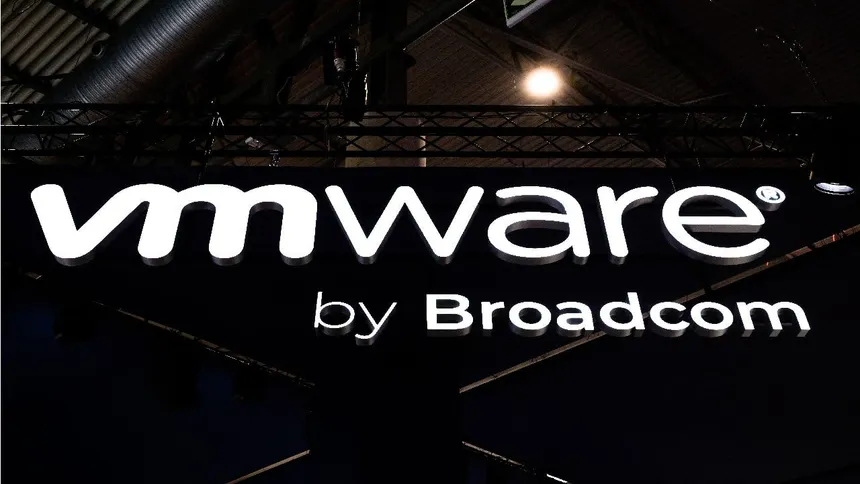As someone who entered the VMware ecosystem relatively late (right before the Broadcom acquisition), I witnessed firsthand the changes Broadcom introduced to the well-known and established VMware certification tracks. I was pursuing my VCIX-DCV, working hard to get my VCAPs, when the changes essentially made that goal impossible (due to the deprecation of VCAP-DCV Deploy). I adapted, earned my VCP-VCF Administrator, and gained a foothold in the partner ecosystem.
Broadcom has reshaped the entire program and aligned professional certifications with their own vision of VMware. In this post I will summarize the commonly known facts and provide an overview of the changes.
The Old Way
The former certification path of VCP → VCAP → VCDX with multiple tracks (DCV, NV, CMA, etc.) no longer exists. In the past, candidates were required to attend an official training course for each track and level. Some exams were more expensive than others. Earning both VCAP Design and VCAP Deploy in a track awarded the VCIX badge. Specialist badges also existed (e.g., vSAN, Tanzu).
It was a broad ecosystem, supported by multiple training providers, strong community engagement, and a large community of homelab enthusiasts.
Changes Under Broadcom
Exam-only certifications
The requirement to attend a course was removed. Candidates can now sit the exam directly and obtain certification. There was discussion of new badges to differentiate between certified professionals with or without training, but this was never implemented.
Flat exam fee
Each exam now costs $250. VMUG Advantage members receive a 50% voucher for VCF certifications.
New certifications
Broadcom introduced new certifications that still carry the VCP name but clearly mark a new era:
- VMware Certified Professional – VMware Cloud Foundation 5.2 Administrator
- VMware Certified Professional – VMware vSphere Foundation 5.2 Administrator
- VMware Certified Professional – VMware Cloud Foundation 5.2 Architect
Certification lifecycle
VCP certifications now have a 36-month validity. No year-based badges: you certify once per major version, and the credential remains valid for three years.
On-demand training
Active VCF customers (and partners) can access VMware on-demand courses via the Learning@Broadcom platform at no additional cost.
Restricted access to homelab licenses
Access to the software portfolio for homelab use now requires both a VMUG Advantage membership and certification in the new paths (VCF or VVF). Software updates are restricted as well, forcing many homelab users to rethink their setups and making certification preparation more challenging.
Legacy certifications
All previous certifications have now become “legacy.” They will no longer be updated or corrected – many exam questions reference features that are already deprecated.
Those certifications include:
- VMware Certified Professional – Data Center Virtualization
- VMware Certified Professional – Network Virtualization
- VMware Certified Professional – Cloud Management and Automation
- VMware Certified Advanced Professional – Data Center Virtualization Design
- VMware Certified Advanced Professional – Network Virtualization Design/Deploy
- VMware Certified Specialist – vSAN
- VMware Certified Specialist – vSphere with Tanzu
The full list can be found on the official VMware Certification site.
Current Landscape
With the release of VCF 9, five new certifications were introduced. Broadcom now differentiates three paths: Support, Implementation, and Architecture. The current certifications are:
- VMware Certified Professional – VMware Cloud Foundation Administrator (2V0-17.25)
- VMware Certified Professional – VMware Cloud Foundation Architect (2V0-13.25)
- VMware Certified Professional – VMware Cloud Foundation Support (2V0-15.25)
- VMware Certified Professional – VMware vSphere Foundation Administrator (2V0-16.25)
- VMware Certified Professional – VMware vSphere Foundation Support (2V0-18.25)
Notably, the VCP-VCF 5.2 certifications introduced earlier are already considered “legacy”. That alone signals where the focus is shifting – VCF 9 is the platform Broadcom wants everyone aligned with.
What’s with VCAPs?
There are rumors that VCAPs will return. This has been mentioned by Drew Nielsen in interviews and reportedly also at this year’s VMware Explore. The expectation is that VCAPs will validate deeper expertise in specific VCF components (e.g., NSX, vSAN, Automation). No official announcements yet, but it is an area to watch closely.
What’s with VCDX?
This is the most uncertain part of the program. Broadcom caused concern by sending a FAQ email about discontinuing the VCDX program, which was quickly revoked with an apology. This raised questions: if the program is not being discontinued, why was the email drafted at all? At this point, one of the most prestigious certifications in IT faces an unclear path forward.
Broadcom Partner Certifications
For Broadcom partners, additional certifications are available:
- Proven Professional: requires passing a VCP exam.
- Certified Expert: awarded to professionals who hold the Proven Professional title and can demonstrate successful customer implementations.
The highest level of recognition is the Broadcom Knights Program, again limited to partners. If you let me guess, this may evolve into a future replacement for the VCDX program.
Closing Thoughts
In my view, the legacy VMware certifications still carry some personal value – they provide structure for self-study and can serve as milestones in mastering VCF. Professionally, however, their relevance is fading as the program shifts from broadly recognized credentials toward partner compliance requirements. For those inside the partner ecosystem, this means structured training and additional certification paths. For independents, the situation has become considerably more difficult.
We should not forget that the construct of “VMware by Broadcom” is still in its early stages, and in my opinion it will take years for the certification program to fully stabilize. With the release of VCF 9, a new ecosystem of certifications and training will likely emerge. For now, I would focus on the VCF-based paths, while treating legacy certifications as optional personal achievements rather than strategic career investments.

Leave a Reply